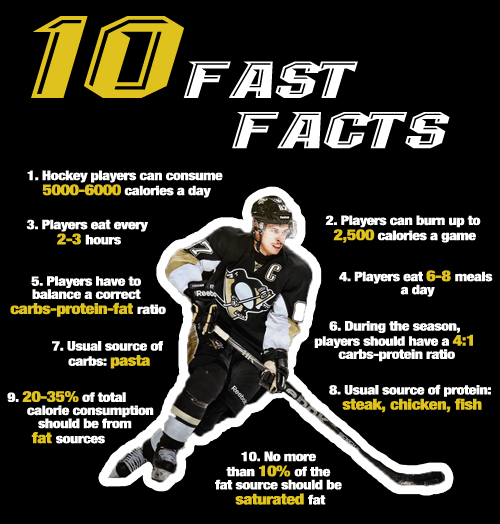Ever wondered how many calories you burn in a hockey game? It’s more than you’d think.
Hockey is a high-intensity sport that demands a lot from your body. The fast-paced nature and constant movement make it a powerful calorie burner. Playing hockey involves bursts of speed, quick turns, and physical contact. This combination makes it a full-body workout.
Whether you’re skating, passing, or shooting, your muscles are always engaged. This means you burn a significant number of calories every game. Additionally, the intensity of the game varies based on your position and playing style. By understanding these factors, you can better appreciate the physical demands of hockey and how it contributes to calorie burn. Read on to find out the specifics.
Credit: calculator.academy
Calories Burned In Hockey
Playing hockey is not only fun but also a great workout. Many people wonder how many calories you burn in a hockey game. The answer varies based on different factors. Below, we will explore the calories burned in hockey.
Factors Affecting Calorie Burn
Several factors can impact how many calories you burn during a hockey game:
- Intensity: The more intense the game, the more calories you burn.
- Duration: Longer games lead to higher calorie burn.
- Player’s Weight: Heavier players burn more calories.
- Age and Gender: Younger players and males usually burn more calories.
Average Calories Burned
The average number of calories burned during a hockey game can vary. Below is a table showing the estimated calories burned based on different weights:
| Weight (lbs) | Calories Burned (per hour) |
|---|---|
| 125 | 600 |
| 155 | 744 |
| 185 | 888 |
These values are estimates. The actual calories burned can vary based on the factors mentioned.

Credit: penguins-primer.fandom.com
Intensity And Duration
Playing hockey is a great way to burn calories. The number of calories you burn depends on the intensity and duration of the game. Both factors play a crucial role in determining your energy expenditure. Let’s dive deeper into how these elements impact your calorie burn.
Impact Of Game Intensity
The intensity of a hockey game can vary. From a casual game with friends to a competitive match. Higher intensity levels result in more calories burned. In an intense game, players skate faster, make quick turns, and engage in physical contact. These activities elevate your heart rate and increase energy expenditure.
A high-intensity game can burn up to 700 calories per hour. On the other hand, a low-intensity game might burn around 400 calories per hour. The more intense the game, the more calories you burn.
Role Of Playing Time
Playing time also influences the number of calories burned. Longer games lead to more calories burned. A typical hockey game lasts for 60 minutes. But, some games, like recreational ones, can be shorter or longer.
Here is a table showing the estimated calories burned based on playing time:
| Playing Time | Calories Burned |
|---|---|
| 30 minutes | 350 calories |
| 60 minutes | 700 calories |
| 90 minutes | 1050 calories |
The longer you play, the more calories you burn. Balancing intensity and duration can help optimize your calorie expenditure during a hockey game.
Player Position
Playing hockey is a high-intensity sport that burns many calories. The number of calories you burn varies depending on your player position. Each position requires different levels of effort and movement. Let’s break down how calorie burn differs for forwards, defensemen, and goalies.
Forwards Vs. Defensemen
Forwards are always on the move. They skate fast, attack, and defend. This high level of activity burns more calories. On average, forwards burn around 700-900 calories per hour.
Defensemen also work hard but in different ways. They focus on blocking shots and protecting the goal. Their calorie burn is slightly lower than forwards. Defensemen can burn about 600-800 calories per hour.
Goalie Calorie Burn
Goalies have a unique role. They stay in one area but must react quickly. Their movements include quick bursts of energy. This position burns fewer calories compared to forwards and defensemen.
Despite less movement, goalies still burn calories. Goalies can burn roughly 400-600 calories per hour. Their job requires mental focus and quick reflexes.
Training And Fitness Level
The number of calories burned in a hockey game depends on many factors. One of the most important factors is your training and fitness level. Players with better conditioning can play harder and longer. This means they burn more calories.
Impact Of Physical Conditioning
Physical conditioning has a huge impact on calorie burn. A well-conditioned player has more strength and stamina. This allows them to skate faster and sustain high-intensity efforts.
Their muscles work more efficiently, burning more calories in the same amount of time. In contrast, a less conditioned player may tire quickly and burn fewer calories.
Calories Burned In Practice
Even during practice, calorie burn can be significant. Practice sessions often include drills that mimic game situations. These drills require speed, agility, and endurance.
On average, a player can burn between 300 and 600 calories per hour in practice. The exact number depends on the intensity and duration of the practice.
| Activity | Calories Burned per Hour |
|---|---|
| Light Practice | 300-400 |
| Moderate Practice | 400-500 |
| Intense Practice | 500-600 |
Remember, the more you train, the better your conditioning. This allows you to burn more calories and improve your game performance.
Comparing To Other Sports
Playing hockey burns a significant number of calories. But how does it compare to other sports? Let’s look at how many calories you burn in hockey vs. soccer and basketball. You might be surprised at the results.
Hockey Vs. Soccer
Soccer is another high-intensity sport. Players are always on the move. A typical soccer game lasts 90 minutes. During this time, players can burn between 700 to 1,000 calories.
In a 60-minute hockey game, players can burn between 500 to 700 calories. The difference comes from the duration and the continuous running in soccer. Yet, hockey players spend a lot of energy in short bursts.
| Sport | Calories Burned (per game) |
|---|---|
| Hockey | 500 to 700 |
| Soccer | 700 to 1,000 |
Hockey Vs. Basketball
Basketball is another sport with high energy demands. A basketball game lasts around 48 minutes. Players can burn between 400 to 600 calories in a game.
Again, hockey burns a similar amount of calories. The intensity of skating and quick shifts in hockey match the fast pace of basketball. Both sports require a lot of cardio and strength.
| Sport | Calories Burned (per game) |
|---|---|
| Hockey | 500 to 700 |
| Basketball | 400 to 600 |
Both soccer and basketball burn a lot of calories. Yet, hockey holds its own in terms of energy expenditure. The high intensity and quick movements of hockey make it a great workout.

Credit: cleargear.com
Frequently Asked Questions
How Many Calories Do You Burn Playing Hockey?
Playing hockey can burn around 500-700 calories per hour. This varies with intensity and individual factors.
Does Hockey Burn More Calories Than Running?
Yes, hockey often burns more calories than running. The intense, fast-paced nature of the sport increases calorie burn.
How Does Body Weight Affect Calories Burned In Hockey?
Heavier individuals burn more calories. More weight means more energy needed to move and play.
Is Hockey A Good Workout For Losing Weight?
Yes, hockey is a great workout. It combines cardio and strength training, aiding in weight loss.
How Long Do You Need To Play Hockey To Burn 1000 Calories?
Playing hockey for roughly 1. 5 to 2 hours can burn 1000 calories, depending on intensity.
What Factors Influence Calories Burned In Hockey?
Factors include body weight, intensity, duration, and individual fitness level. All affect the total calories burned.
Is Hockey Better For Burning Calories Than Gym Workouts?
Hockey often burns more calories than standard gym workouts due to its high intensity and constant movement.
Do Goalies Burn Fewer Calories In Hockey?
Yes, goalies usually burn fewer calories. They move less compared to outfield players, affecting calorie burn.
Can Playing Hockey Help Build Muscle?
Yes, hockey helps build muscle. It involves strength, endurance, and resistance, which are good for muscle development.
Conclusion
Playing hockey burns a significant number of calories. Engaging in this sport not only helps with weight management but also boosts fitness levels. The intensity of the game ensures a high energy expenditure. Consistent participation in hockey can lead to improved physical health.
Remember to stay hydrated and properly fueled. Always consult with a health professional before starting any new exercise routine. Lace up those skates, hit the ice, and enjoy the benefits of hockey. Happy playing!




